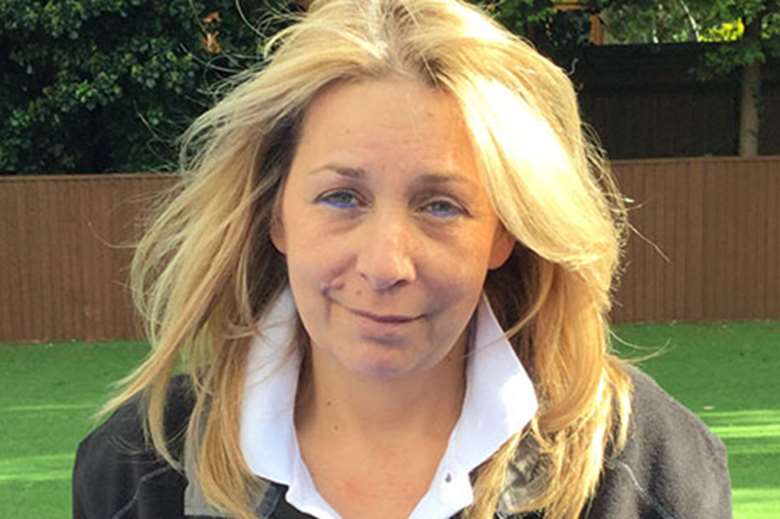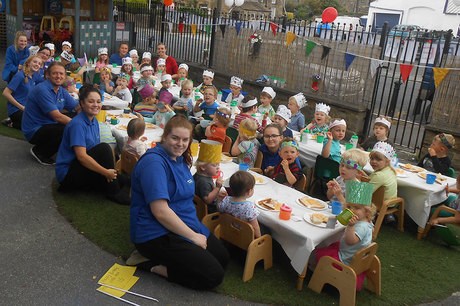Government petitioned to scrap business rates
Monday, October 16, 2017
The campaign calling for business rates to be scrapped for nurseries in England is ramping up in light of the Scottish government’s decision to axe them and a consultation on them in Wales.

The campaign calling for business rates to be scrapped for nurseries in England is ramping up in light of the Scottish government’s decision to axe them and a consultation on them in Wales.
Nursery World has spoken to one owner who has had the rateable value of his nurseries for 2017/18 rise by 135 per cent (see case study).
In England, a petition has been launched by nursery owner Sue Johnson, who runs Scamps of Benson in Oxfordshire. The nursery is based in a detached property with half an acre.
‘The leap is so great,’ she said. ‘I was paying £13,000 before April and I’m now paying £17,500. I’m in the middle of appealing at the moment. I pay my business rates and get nothing in return,’ she said. ‘I have to pay a private contractor £10,000 a year just for having my bins collected.’
Ms Johnson said it has taken her two years to get to a Valuation Tribunal to challenge the rates. ‘There’s nowhere to go for advice. When you’re dealing with other factors it makes this so difficult. They include toilet space – you need one toilet for ten children – and storage space is rateable too. Everything needs to be measured, including the summer house and conservatory.
‘All we can do is put our prices up. We might have a chance. More and more nurseries are going out of business.’
The petition
As of 12 October, the petition on the gov.uk website calling for the removal of business rates and VAT had more than 2,700 signatories.
The National Day Nurseries Association has waged a longstanding campaign calling for business rates to be scrapped and is backing the petition.
In the NDNA’s annual survey (2017), when asked ‘What would enable you to offer 30 hours?’, being exempt from business rates was the third most popular answer (51 per cent). The survey found the previous rates bill average was £10,778; nurseries’ rateable value on average was £19,654. The average new rateable value from April was £23,863 – an increase of 24 per cent.
Business rates vary between regions and are determined by calculating the properties’ local rateable value with a rating multiplier set by the Valuation Office Agency (VOA), currently approximately 0.47p.
Stella Ziolkowski, director of quality and workforce development at NDNA, said, ‘There’s a lot of pressure with underfunding, the National Minimum Wage. Everything has soared. Nurseries are squeezed. We keep pushing. What the Government is trying to do is to have affordable childcare to allow parents to be economically active, which we agree with, but it shouldn’t be the nurseries that suffer as a result.’
Last month, Scottish Finance Secretary Derek Mackay confirmed that nurseries in Scotland will be exempt from business rates from next April. ‘I propose that the new relief for day nurseries will commence on 1 April 2018 and will be a full 100 per cent relief,’ he said.
A Scottish government-commissioned report into non-domestic business rates said that the move will save the childcare sector in the country around £8m a year.
Commenting on the decision in Scotland, Colin Hunter, director of Lambert Smith Hampton, which partners with the NDNA to advise members on appeals against business rates, told Nursery World, ‘It’s very good news that they’re taking action, but until we see the details in regulations it’s difficult to say all nurseries will be exempt. It could be a relief scheme and not all nurseries may qualify.’
He said that England and Wales have seen ‘a massive increase in rateable values’.
On whether he believes business rates should be scrapped, Mr Hunter said, ‘There is scope to say that some relief scheme should be in place for nurseries, especially with the underfunding of the 30 hours “free” childcare. You could argue for parity with charities in the same way that many academy schools get relief, or with a registration scheme similar to community amateur sports clubs.’
Charities receive 80 per cent mandatory relief. While maintained schools pay business rates, academies set up as charities are eligible for 80 per cent mandatory relief. Community amateur sports clubs are treated as charities for tax purposes.
Mr Hunter added that the new system in England of ‘check, challenge and appeal’, introduced by the Government from 1 April, has made it harder for nurseries to appeal, and he hasn’t seen an increase in appeals by nurseries due to the increase in rateable values.
‘The appeals system is very heavily weighted against the rate-payer and is draconian,’ he added.
As the agent putting together the appeal for a nursery, he said the VOA provides a summary valuation and nothing else. ‘At the check stage, I have to provide the VOA with my floor areas, my plan, and my calculations and have to set out line by line whether I agree or disagree with the valuation officer’s areas. The VOA don’t have tell you what they think is wrong or provide details of how their areas have been arrived at – they just say they don’t agree, or on rare occasions accept the areas put to them. The VOA have a year to deal with this stage. But in most cases the real problem is the level of value, not the facts. This is the next challenge stage.
‘The rate-payer has to prove that the Valuation Office Agency is wrong. You used to be able to have a discussion, but now you have to provide a very detailed and meticulously documented argument with all of your evidence before the VOA have to make any response.
‘You can wait 18 months for a decision from the VOA and at no point is the VOA required to provide their evidence or justify their valuation. If you don’t get a satisfactory outcome from the challenge, you have to go to the Valuation Tribunal, and you can only introduce additional evidence at this final stage with the VOA’s written agreement. This is why I believe the new system to be draconian and grossly unfair to rate-payers.’
Case study
Adrian Stocks, who runs six nurseries in West Yorkshire, is calling for the business rates to be scrapped after receiving rises to the rateable value of his settings at an average of 135 per cent, leaving him with a business rates bill of more than £100,000.
Total rates payable on two of his settings are now £49,726 – an increase of £28,153.
‘It’s a nightmare,’ said Mr Stocks, who runs Cliffe House Day Nursery – four settings in Leeds and two in Bradford – with his wife, Della.
They bought their first nursery in 1998. ‘We put our fees up on an annual basis around 3 per cent to cover electricity, gas, staff wages,’ said Mr Stocks. ‘Imagine our shock. It doesn’t make any sense whatsoever. If I said to my parents I’m putting my fees up overnight by 135 per cent, they would disappear overnight. I’d go bankrupt.
‘If it were scrapped I could take on more apprentices, make it a better workplace, buy more resources, re-invest in the business. If they were zero-rated, I would want to expand. I would save over £100,000 a year.’
Of the petition, Mr Stocks said, ‘I’m going to get all my parents to sign it.’ He has also written to his local MP, Philip Davies.

Cliffe House Day Nursery
‘Nurseries have to be a certain size property to be viable, we’re dictated to by Ofsted [on numbers of children], and then there’s the business rates,’ he said. ‘They’re hammering you for business rates because of the criteria. It’s almost like the Government are trying to control the whole sector – it’s like price-fixing.
‘We have one Outstanding nursery, and others are Good with Outstanding features and we want more Outstanding. We’ve employed someone to help us get there and we’re running additional training for staff – it all costs. Obviously, it hurts.’
The rise to the rateable value on his nurseries for 2017/18 ranges from 35 per cent on one site to 143 per cent at Leeds Trinity University, based across two buildings – one has had its rateable value increase from £6,400 to £15,500.
Another setting has seen increases from £21,000 to £45,250; an out-of-school club building attached to another nursery has risen from £9,700 to £24,250.
Mr Stocks has contested the previous rates on four of his nurseries and succeeded in gaining a reduction, and plans to contest the new ones.
‘I’m trying to save a 135 per cent increase that shouldn’t be there in the first place. The whole system is flawed,’ he said.
- Sign the business rates petition at https://petition.parliament.uk/petitions/200679










